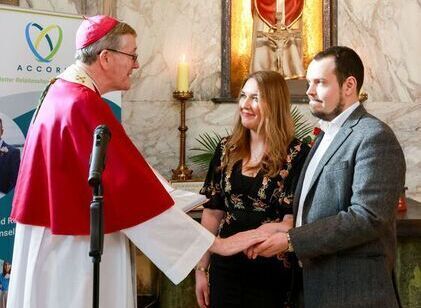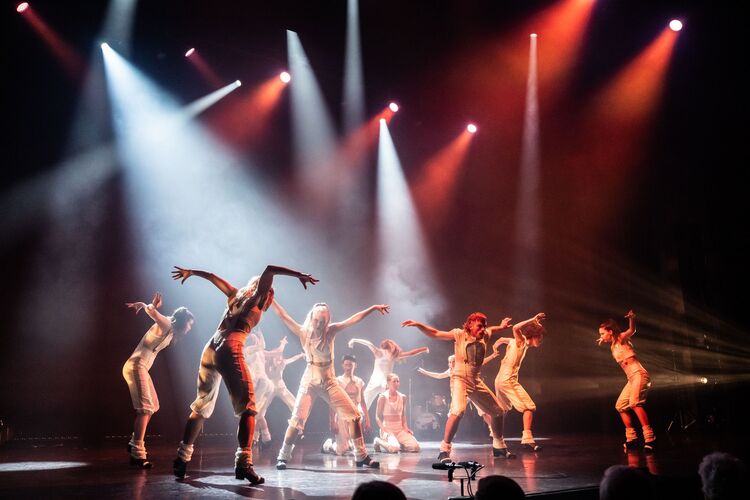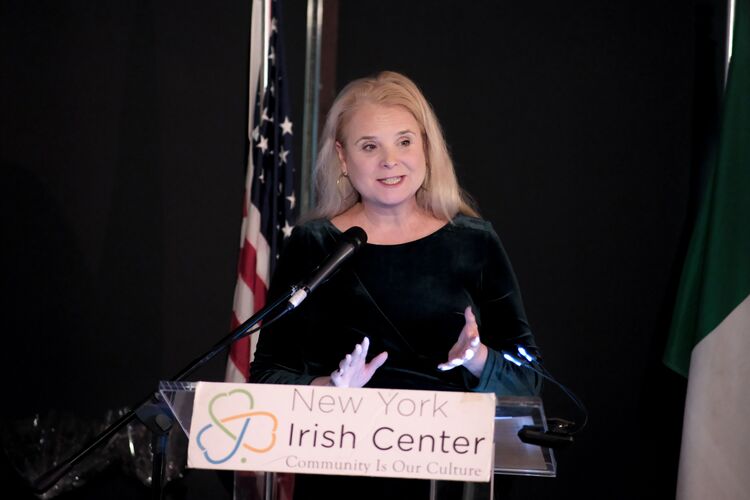Vice President Joe Biden and Senator Kamala Harris both have a Finegan great-grandparent in their family tree (officially changed later to, or often written as, Finnegan, the more common variation). Boston area genealogist Jim McNiff has been following up some leads in the case of the senator.
By Peter McDermott
It was Jamaica, 1965.
The family group had returned from church. Donald Harris recalled his grandmother “proudly holding in her lap little Kamala.” After giving her “blessings” by making a cross with her finger on the child’s forehead, she confidently predicted future achievements for her great-granddaughter.
Harris remembered this in “Reflections of a Jamaican father,” an essay published two years ago this week. In it he discusses his daughters, Kamala and Maya, but he concedes the piece is really mostly about the “two most influential women in my life” — his grandmothers “Miss Chrishy” and “Miss Iris” — and how they made him the prominent Stanford University economist he became. Beryl and Oscar, his parents, who apparently split up early, get mentioned in one line.
Oscar Harris’s mother was Miss Chrishy, a disciplinarian, “reserved and stern in look," but who when she died at age 70 in 1951 left him a bereft teenager. Her husband, his grandfather Joseph Harris, died in 1939, a year after his birth. Far away in America, he grieved, too, “for someone so dear and close to me,” when Miss Iris, his maternal grandmother died in 1981 at age 93.
Miss Iris “was the sweetest and gentlest person one could meet,” but tough inside, a farmer and an educator. Her husband was “Mr. Christy.” Harris doesn’t say that this man was his grandfather or when he died. At one point, he writes of her as “née Iris Finegan,” adding “ancestry unknown to me.”
Boston area genealogist Jim McNiff can’t help with the latter issue, but reveals that Miss Iris was in fact born Orah Allen. Patrick Finegan was the name of her first husband.
When McNiff was last interviewed in the Irish Echo, in 2019, it was to put people straight about Robert De Niro’s heritage, placing him a generation closer to the Irish immigrant experience than had previously been thought. Again in this recent case, other researchers before him have perhaps made missteps by not being aware of two marriages. McNiff believes that Patrick A. Finegan, who married Orah Allen, aka Miss Iris, in 1908, was the mixed-race son of a man called Patrick Finegan from Ireland. Miss Iris and Patrick A. Finegan, were the parents of Donald Harris’s mother Beryl.
Last month, when accepting the Democratic Party nomination for U.S vice-president, Senator Kamala Harris said to Joe Biden that when it came to their attitude to family, “we are cut from the same cloth.” The presidential candidate is the great-grandson of Owen Finegan, who left behind his father John Finegan in County Louth, and so that phrase of hers could be close to the truth in another intriguing way.
The idea that Senator Harris is the great-great-granddaughter of an Irish immigrant named Patrick Finegan has found some compelling circumstantial evidence in a Jesuit missionary’s reports back to America. The Rev. Patrick F.X. Mulry S.J. refers to visits in the 1900s to places that feature prominently in Donald Harris’s account of his childhood and youth of the 1940s and ‘50s — notably Brown’s Town in the Dry Harbour Mountains, in the north central region administratively known as St. Ann’s Parish.
The Ram newspaper at Fordham reported Mulry’s Nov. 2, 1922, death in its Nov. 9 issue. It said that he was the last of four Jesuit brothers, and that his nephew, Fr. Joseph Mulry, S.J., celebrated his funeral Mass. The obituary said he was well-known for his zeal, sturdy character and a love of Ireland that was “conspicuous at all times.” Mulry had been until illness struck in 1921, it said, a “striking figure in the religious history of Jamaica for more than quarter of a century.”
Fr. Mulry was a noted controversialist as editor of the Jamaican Catholic Monthly and in the first decade of the 20th century was particularly concerned with an advocate of "independent Baptistry," one Dr. Johnson: “His class-houses are scattered here and there there throughout the Dry Harbour Mountains like forts of error…”
The Jesuit complained in mid-July of 1904 of one poorly attended Mass and the fact he didn’t get even a cup of coffee after it. “The road to Carney is so bad,” he wrote, “that I had not the heart to inflict it on the good horses again this afternoon, so I went up in the saddle, and visited the school.”
He continued, “Thanks to a Mrs. Finnegan, I fared better than this morning, for she, knowing of my coming, had sent to the school-room for me two eggs and a pint of fresh milk. God bless her black skin, for she certainly hasn’t a black heart; she is the widow of an Irishman, Pat or Tim Finnegan or something of that kind, and the proud mother of a tribe of brown Finnegans, who in their faith are a credit to her and their father. If their faith had not been extra strong, they would have lost it long ago in the midst of the Johnsonites who infest the neighborhood.” (We can’t say at this distance whether Mulry expressed himself in ways that might have been considered offensive to some at the time.)
Two years later, in March 1906, Fr. Mulry was obviously on more familiar terms with the same people. “Mrs. Finnegan, one of the congregation, looked after the priest, and eggs and milk were supplied with true Finnegan generosity,” he wrote. “She is the widow of Patrick Finnegan, who with her cooperation started an Irish colony in this part of the world. Her color being black, these Dry Harbor Finnegans are not even green but that special shade of dark brown which in Jamaica is designated as Sambo. There were three Patricks at the Mass: the celebrant — a white man at one time — Patrick Walsh, certainly a white man, and Patrick Finnegan, a sambo scion of the aforesaid combination of Irish and African races.”
And so McNiff, who’s found this lead, has suggested that this mixed-race Patrick Finnegan is the future husband of Miss Iris (they married 21 months later) and a great-grandfather to Senator Harris. In the context, it’s clear, too, reading the letters that “Irishman” in the Jesuit’s vernacular means an immigrant and the deceased father Patrick Finnegan had come from Ireland. (The second “n” isn’t an issue as the priest is not reliable on surname spellings — a Daily in 1904, for instance, becomes a Daly by 1906. The same goes for place names; it's interesting that he reverts to the American spelling of "harbor" in the latter year.) Further circumstantial evidence can be found in the fact that a relative of the Patrick Walsh mentioned here married into Donald Harris’s Finegan family. And, the Boston genealogist feels that researchers have uncovered enough evidence to show, albeit in a roundabout way, that Donald’s grandfather Patrick was the son of a Patrick.
McNiff refers to these links as the “Finegan Awakenings” and believes that the Biden/Harris ticket can help save America. “I’m a fan,” he said of Harris. “I was hoping she would get the nomination. She’s fully committed to her goals, which is what we need in the country. I think she’ll become president eventually. I hope so.”









